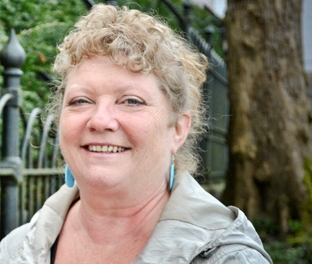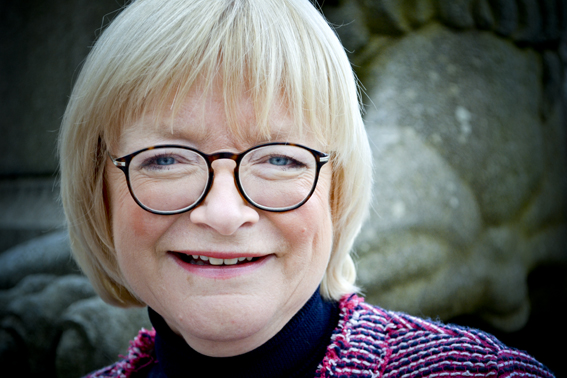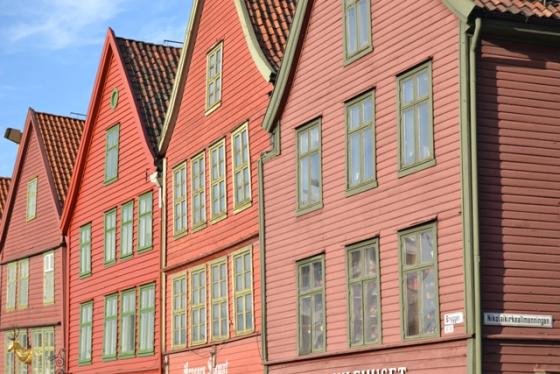Significance of the financial crisis - international conference on gender in academia
Gender balance and gender equality in research is being discussed more often at research conferences. “What is special with this autumn’s conference in Bergen is its status as an international meeting place for researchers and practitioners,” says Gender Equality Adviser Anne Marit Skarsbø.
August 29th is the kick-off of the 7th European Conference on Gender Equality in Higher Education. The conferences have been held since 1998, and the last one took place in Stockholm three years ago. Now it is coming to the University of Bergen (UiB).
“Our conference will address trends and topics that have become relevant since the last conference,” says Berit Rokne, Pro-Rector of UiB.
The registration deadline is 14 August 2012. To register, please see UiB’s website.
Significance of the financial crisis
“You plan to focus on the financial crisis. Why?”
“While we worked on the conference programme, an obvious theme emerged. We saw that it could be difficult to get presenters and participants from Southern Europe involved because of the current financial situation,” explains Skarsbø.
“So then it was natural to ask how the financial crisis affects research and educational institutions and how it affects the field of gender equality,” she continues.
“It goes without saying that women and men should be equal when it comes to both education and careers, but sometimes different kinds of assistance are needed to make this happen. We need to be creative and proactive when obstacles arise in order to create a framework so that young women feel secure and self-confident in their own position,” says Rokne.
More than gender
The challenges of young women is not the only topic at the conference. The detailed list of sessions shows that gender is incorporated into several cross-cutting themes. Among these are mainstreaming, research excellence, research policy and masculinity.

“These conferences typically focus on gender and gender equality, but we will also include topics that address diversity, ethnicity and interdisciplinarity,” explains Skarsbø.
“We’ve got speakers with a high level of expertise who are leaders in their fields. We’ve also emphasized geographic and thematic variation,” she adds.
“Which of the speakers are you especially proud of?”
“It’s difficult to point to someone in particular, but Cordelia Fine is one. She’s a relatively young psychology researcher from Australia who is also a fiction writer. We’ve heard that she has a sharp sense of humour and an intelligent understanding of reality,” says Skarsbø.
“What is her area of interest?”
“She offers a feminist critique of the neuropsychological understanding of gender. In this way she zeroes in on the debates started by the NRK programme ‘Brainwash’ about nature versus nurture,” says Skarsbø.
European and global perspectives
Fine will be one of six keynote speakers along with Renata Siemienska of Poland, a professor of sociology and the head of the Department of Sociology at the University of Warsaw, who is also recognized internationally. In addition, as a member of UNESCO’s board for Women, Society and Development, she brings a more global perspective to the conference.
“Kathrin Zippel does the same. She has a background in political sociology and applies a global perspective in many of her works. Alexandra Bitusikova probably has a more European orientation due to her affiliation with the European University Association,” says the Pro-Rector.
“Are any of the keynote speakers Norwegian?”
“Yes, we have two researchers from Norway – Mari Teigen of the Institute for Social Research and Curt Rice of the University of Tromsø,” says Skarsbø.
Topics for men
“Curt Rice is the only man who is a keynote speaker. Are there any topics for men at the conference?”
“All the topics are suitable for both genders, but the topic of gender and career is perhaps the most obvious one that crosses gender lines. Here we know that there are vast differences within the various subject areas, and in some areas it is men who are the underrepresented gender,” says Skarsbø.

“Women are in the majority in some of our study programmes, such as medicine and dentistry, but we would like to see gender balance in the professional studies,” says Rokne.
“Even though this topic is obviously of interest to men, all the topics are relevant for both genders. We also want to have gender balance among the participants. The conference deals with gender equality and gender balance, and it is important that men also regard this as an issue that concerns them. If not, it will be difficult to achieve our goals. Luckily we have seen an increase in the number of men at the conferences,” says Rokne.
International conference
“Who is the target group for the conference?”
“The conference is directed both at researchers who are concerned about gender equality in their research and those who work with the practical aspects of gender equality in academia and higher education. This might include gender equality practitioners or people who sit on gender equality committees,” explains Skarsbø.
“It’s also important for us to create a meeting place. Gender equality work is often a lonely job. It’s not always easy to be the only one talking about gender equality at each and every occasion. Then it’s important to have a place where they can meet others in the same situation and get updated, research-based knowledge about the field,” says the Gender Equality Adviser.
The conference is a cooperative effort with the European Network on Gender Equality in Higher Education, which brings together several hundred practitioners, researchers, teachers and administrators with an interest in gender equality issues in the research and education sector.
“Many of the participants have made this conference a permanent part of their schedules, but we hope that we can recruit new people as well,” Rokne adds.
“It is also a broad-based conference with participants from all over the world. People come from the US, New Zealand, Australia and Africa, in addition to many European countries. Northern and Central Europe have been best represented, but we hope to have even more Norwegian participants this year,” says Skarsbø.
Exemplary internal initiatives
“Conferences like this also mean a lot to us locally in Bergen,” says Rokne.
“It gives us the opportunity to address those areas we believe are important. Gender equality and gender balance are part of UiB’s strategy. As part of this work we have drawn up a new action plan for gender equality, which is based on an expanded view of equality. Now the plan also includes ethnicity, religion, sexual orientation, people with disabilities, language and age. It applies to the students as well as to the academic and technical-administrative staff,” explains the Pro-Rector.
“In this action plan we show that we want to focus on gender equality and gender balance. By acting as host for such a large conference on this theme, we demonstrate that we want to be a role model for other countries and other institutions,” says Rokne.
Translated by Connie Stultz.
Theme: Gender balance in a changing academic world – against the backdrop of the current financial crisis in Europe and beyond.
Organizer: University of Bergen in cooperation with the European Network on Gender Equality in Higher Education (the eq-uni list), comprised of researchers and gender equality practitioners from throughout Europe.
Dates: 29-31 August 2012
Place: Bergen, Radisson Blu Royal Hotel
Keynote speakers: Alexandra Bitusikova, Cordelia Fine, Curt Rice, Renata Siemienska, Mari Teigen, Kathrin Zippel.
Registration deadline: 14 August 2012
For registration and more information, please see the conference’s website.
